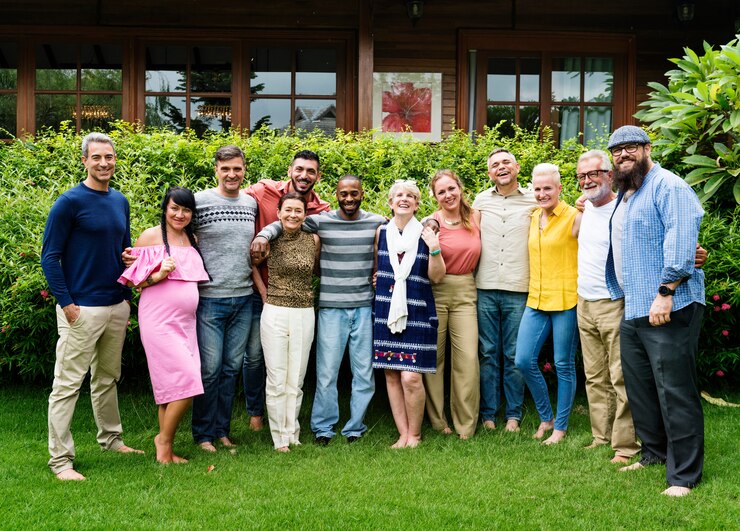The Human Gathering Cult, founded by Gabriel Marlowe in the late 20th century, represents a fascinating blend of spirituality, community, and personal development. This article delves into its origins, core beliefs, practices, and the implications of its existence in contemporary society.
Origins and Founding Principles
The Human Gathering Cult emerged during a time when many individuals were seeking alternative pathways to personal fulfillment and community connection. Gabriel Marlowe, the founder, combined elements of psychology, mysticism, and Eastern philosophy to create a unique framework for the group. This synthesis of ideas aims to foster personal empowerment and holistic well-being among its members.
Core Beliefs and Values
At the heart of the Human Gathering Cult are several core beliefs that guide its members:
- Personal Empowerment: The cult emphasizes the importance of self-discovery and personal growth. Encouraging individuals to explore their inner selves and potential.
- Communal Living: Members are encouraged to live in a supportive community that fosters collaboration, shared experiences, and mutual growth.
- Holistic Well-Being: The cult promotes practices that enhance physical, mental, and spiritual health, integrating various disciplines to support a balanced lifestyle.
These beliefs create a framework that attracts individuals seeking deeper connections and a sense of belonging.
Membership and Recruitment
Becoming a member of the Human Gathering Cult typically involves an application process followed by an initiation ritual. This process symbolizes a commitment to the group’s principles and communal lifestyle. The cult often targets individuals who are searching for meaning, belonging, and purpose. Employing various recruitment techniques that may include emotional appeals and community engagement.
Practices and Rituals
The Human Gathering Cult engages in a variety of practices aimed at fostering spiritual growth and community bonding:
- Meditation and Mindfulness: Regular meditation sessions are held to promote self-awareness and mental clarity.
- Chanting and Ceremonies: Members participate in rituals that incorporate chanting and other spiritual practices, enhancing their connection to the group and its teachings.
- Communal Activities: Social gatherings and collaborative projects are organized to strengthen relationships among members and reinforce the communal aspect of the cult.
These practices not only serve to deepen individual spirituality but also to strengthen the bonds within the community.
Challenges and Misconceptions
Despite its positive intentions, the Human Gathering Cult faces challenges and misconceptions often associated with cults in general.
- Media Sensationalism: The portrayal of cults in the media often leans towards sensationalism, depicting them as dangerous or fanatical. While some cults may exhibit harmful behaviors, many operate harmlessly, focusing on unconventional beliefs and community support.
- Psychological Dynamics: Critics argue that cults manipulate members psychologically, leading to dependency and loss of critical thinking. However, many individuals join willingly, seeking community and spiritual fulfillment.
The Future of the Human Gathering Cult
The future of the Human Gathering Cult is uncertain and may depend on several factors:
- Adaptation to Societal Changes: The cult may need to evolve its practices and teachings to remain relevant in a rapidly changing world.
- Membership Trends: The sustainability of the cult will be influenced by its ability to attract. And retain members amidst shifting societal attitudes toward alternative spiritual movements.
- Public Perception: Continued scrutiny and media attention could impact the cult’s reputation and operational freedom, necessitating transparency and community engagement.
Conclusion
The Human Gathering Cult is a dynamic spiritual community that offers individuals a unique path to personal growth and communal living. While it faces challenges and misconceptions typical of cults, its focus on empowerment. Holistic well-being, and community support provides a compelling alternative for those seeking deeper connections in their lives. Understanding the complexities and realities of such groups can lead to a more nuanced perspective on their role in contemporary society.
FAQs
What is The Human Gathering Cult?
The Human Gathering Cult is a spiritual community focused on personal growth, communal living, and esoteric teachings, emphasizing self-discovery and holistic well-being.
Who founded The Human Gathering Cult?
The cult was founded by Gabriel Marlowe in the late 20th century, blending various philosophical and psychological elements.
How does one become a member of The Human Gathering Cult?
Prospective members typically apply and undergo an initiation process that symbolizes their commitment to the cult’s principles.
What practices are common in The Human Gathering Cul’t?
Common practices include meditation, chanting, communal living. And participation in rituals aimed at spiritual enlightenment and personal growth.
Are all cults harmful?
While some cults exhibit harmful behaviors, many operate harmlessly. Focusing on unconventional beliefs and practices that promote community and personal development.







